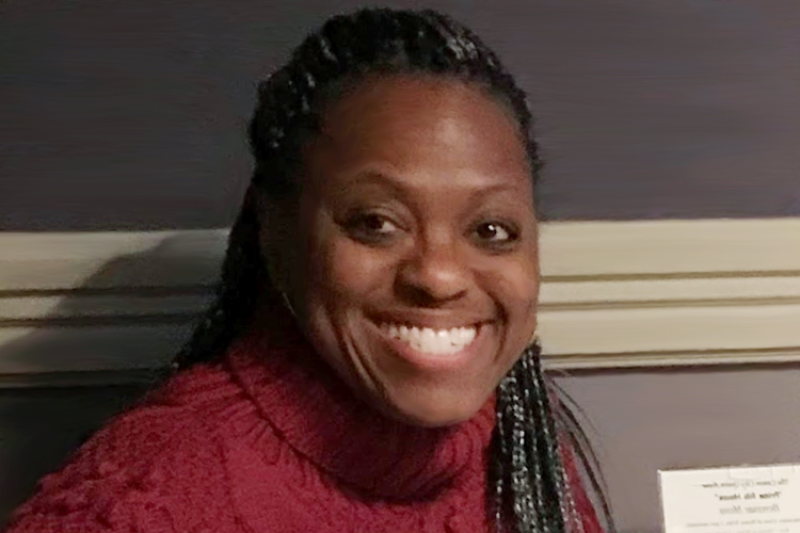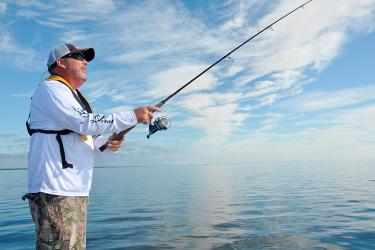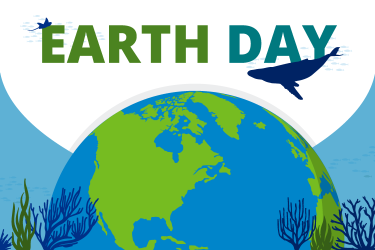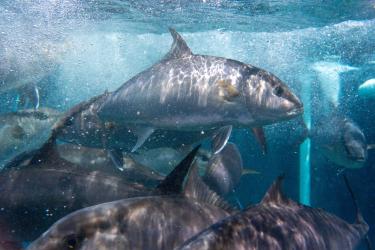What are your key responsibilities?
As the Acquisition Management Specialist for the Southwest Fisheries Science Center, my responsibilities involve contracting a wide range of goods and services for the center. Every day is different. Just recently, for example, I helped our Antarctic Division purchase critical parts for modifying gliders that operate remotely in the Southern Ocean. Our Information Technology team purchases hardware system maintenance and continually helps navigate the Government Purchase Program. Basically, I help our staff buy things!
Where you do you conduct your work?
These days, my work is virtual. I support both Santa Cruz and La Jolla laboratories, but my office is at our laboratory in La Jolla, California.
Where did you grow up?
I grew up in Fresno, California. Since then, I've traveled extensively, initially for work, and I've lived in eastern, western, and southern parts of the United States and overseas.
What is your educational background?
I have three degrees, including a degree in Accounting, Business Administration and a Master’s in Public Administration with the emphasis in Acquisition Management. The latter I earned while I was active duty military with the United States Air Force.
Interestingly, I didn’t start out this way. I actually started out with a psychology major as an undergraduate at UC Davis. It did not take long for me to discover that I am not an abstract thinker. I enjoy structured thought and evidence-based conclusions. I discovered accounting and thrived! Why not science? Continue reading.
Is there a book, quote, or person that influenced you to be the person you are today?
Wow. So many influences. But the most immediate would be my mother. As a single parent I watched her persevere through so many challenges, work hard, and instill the need for a higher education. Her strength provided an example of being diligent and not letting anything get in your way.
When I was young, we had a three-volume set by Jacques Cousteau, and we watched his show on TV. Orcas and dolphins were my favorites. I knew I wanted to do something like that. But, living in the San Joaquin Valley, I didn’t know anyone in marine sciences nor had anyone hinted that it was a real job. But, I always loved and did well in my science classes. Now working at NOAA Fisheries, I can bring my strength in accounting together with my interest in the ocean and science.
What does Black History Month mean to you?
When I was active duty in the Air Force in the early 1990s, there was an essay contest at my duty station for Black History Month. The topic for the essay was “Should Blacks have Fought in the Civil War?” I ultimately won the contest and received an original Buffalo Soldier painting.
At the time, I had not heard of Buffalo Soldiers, so my research commenced. Not only did African Americans fight in the Civil War for the Union, I found many other accomplishments throughout history that were recognized in small circles but not widely known or shared. More recently, African American accomplishments in science, medicine, entertainment, publishing, politics, and contributions to society at large have been recognized. Like many other cultures, the African American experience is vast and captivating. For much of the country, this one month is a snapshot into what others undergo. For me, it is everyday life. So I appreciate the establishment of Black History Month to highlight for others the important events, positive involvement, strong influence, and motivation to overcome past and present struggles—a means of remembering.
What do you like to do outside of work?
I love traveling and I have lots of hobbies: I quilt (no, I don’t take requests), read science fiction fantasy, and ride my Yamaha V-star cruiser (been to Rolling Thunder twice).
What advice would you have for today's youth interested in a federal government career?
First, think about what it is that you like. What speaks to you? The federal government is so many things. What you see most of the time are the obvious parts that you encounter every day, like defense or the Postal Service. What we don’t often see are the smaller agencies, such as the United States Foreign Service or NOAA. Don’t be afraid to look outside of your circle. Know what you are good at and look broadly. It’s out there, and maybe in an unexpected place.





